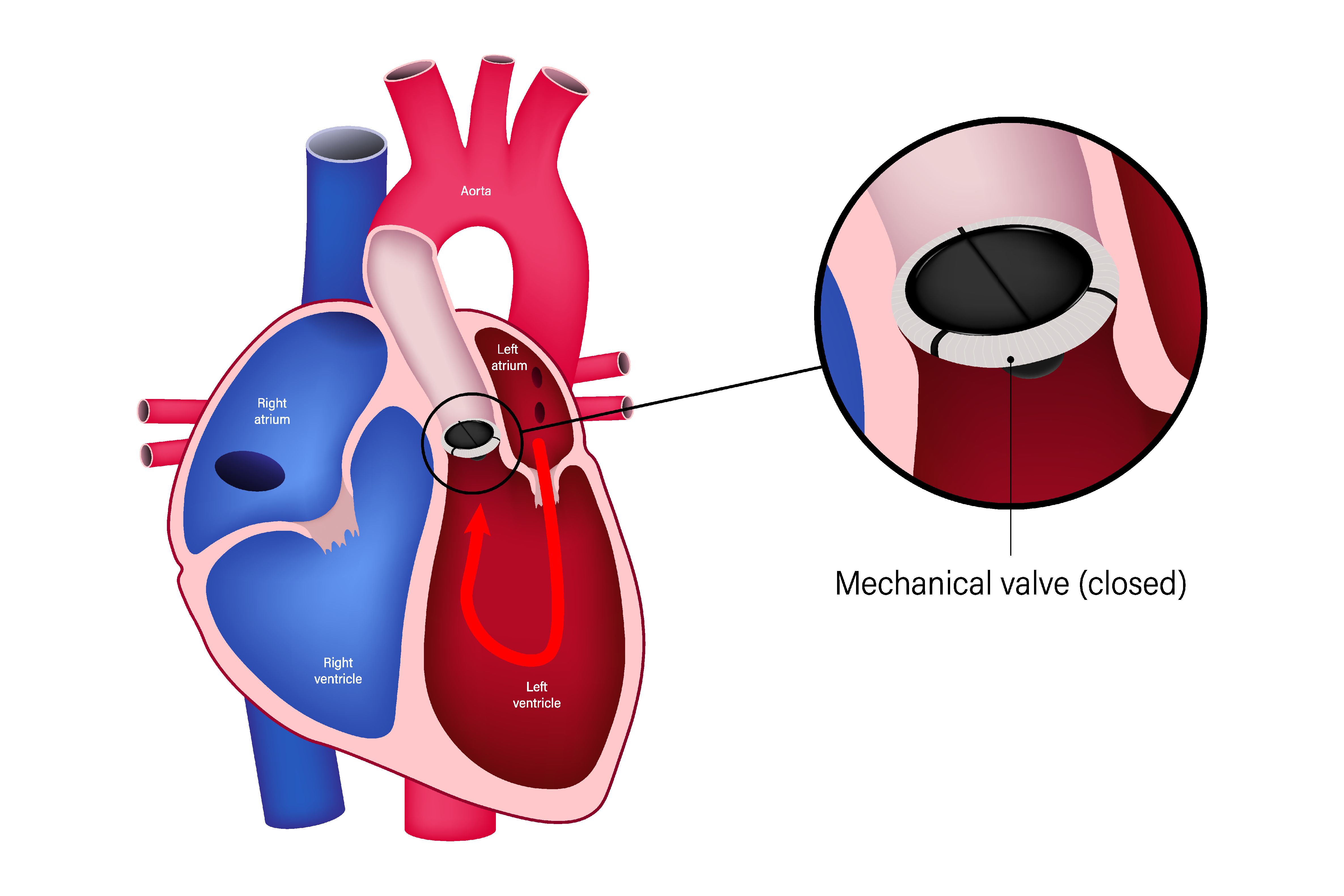
Advantages of Mechanical Valves in SAVR
Introduction
When deciding on valve replacement surgery, choosing between mechanical and biological valves is crucial. Mechanical valves are often preferred for patients needing long-lasting solutions. They are especially effective in mechanical aortic valve replacement, which is commonly selected to improve patient outcomes in Surgical Aortic Valve Replacement (SAVR). Here's why mechanical valves are chosen for long-term heart health.
What are Mechanical Valves?
Mechanical valves are artificial devices used to replace damaged valves in the heart. These valves are made from strong materials like carbon and titanium, allowing them to last for many years.[1] Unlike biological valves made from animal tissue, mechanical valves are completely synthetic, making them a good option for certain patients. These valves work by opening and closing with every heartbeat, ensuring blood flows in the correct direction and supporting normal heart function. This ensures the heart functions normally. [2]
Benefits of Mechanical Aortic Valves
Durability and Longevity [2]
One of the standout features of mechanical valves is their impressive durability. Unlike biological valves, which may wear out over time, mechanical valves can last a lifetime. Patients who undergo a mechanical aortic valve replacement have a very low likelihood of needing a second procedure for valve failure. This makes them a preferred option for younger patients who require a long-term solution.
This longevity also means fewer follow-up surgeries, which reduces the overall physical and emotional burden on patients and their families. However, patients with mechanical valves need to maintain a stable International Normalized Ratio (INR) and require lifelong anticoagulant therapy to prevent blood clots. This adds a layer of ongoing management but is generally considered a worthwhile trade-off given the valve's durability.
Hemodynamic Performance
Mechanical valves provide excellent hemodynamic performance, meaning they allow blood to flow through the heart with minimal resistance. This ensures that the heart can pump blood efficiently without putting extra strain on the organ. [3]
During a mechanical valve replacement, the goal is to restore normal blood flow, and mechanical valves do an exceptional job of maintaining proper circulation. With consistent performance, patients can expect improved quality of life and better overall health after the procedure. [4]
Ideal for Younger Patients
A mechanical valve replacement is often recommended for younger patients because of the valve's durability. Biological valves may need to be replaced after 10-15 years, while mechanical valves can last for decades.[5] For younger individuals, the longevity of a mechanical valve means fewer surgeries and fewer risks associated with multiple procedures; however, lifelong anticoagulation therapy is required.
Additionally, younger patients typically recover faster and have more active lifestyles, making mechanical valves an ideal choice to support their energy and long-term health. [6]
Consistent and Reliable Functionality [7]
Mechanical valves are designed for consistent performance. They are engineered to mimic the exact function of a natural valve, meaning that patients who opt for a mechanical valve replacement can trust that their new valve will work reliably for years to come.
This reliability provides peace of mind for patients, knowing that their heart is functioning properly without the need for frequent medical check-ups or concerns about valve deterioration.
While it’s true that patients with mechanical valves need to take medication to prevent clots, the benefit of having a strong, long-lasting valve usually outweighs this concern.
Lower Overall Long-term Costs
Biological valves often need to be replaced after a decade or so, which means additional surgery and hospitalization. Mechanical valves, on the other hand, offer a long-lasting solution that requires fewer follow-up procedures. [8]
Fewer surgeries mean less time in the hospital, less recovery time, and fewer medical expenses in the long run. This makes mechanical valves a more cost-effective choice for many patients, especially those who are younger and require a durable solution.
Miltonia by Meril
Miltonia by Meril is a bi-leaflet mechanical heart valve designed for long-term durability and optimal performance. Made from pyrolytic carbon, the valve offers excellent thromboresistance and hemodynamic efficiency thanks to its open pivot design and 85° leaflet opening angle. Its structure includes a titanium stiffening ring and a rotating sewing cuff, allowing precise implantation. The valve is available in both aortic and mitral configurations, with distinct features like a low-profile design to reduce complications during surgery.
Conclusion
Choosing the right valve replacement is an important decision. By discussing your options with your doctor, you will be one step closer to a stronger, healthier heart for years to come.
References
[1] https://www.medicalnewstoday.com/articles/302441#Mechanical-or-biological-valves?
[2] https://www.ncbi.nlm.nih.gov/pmc/articles/PMC4526499/
[3] https://www.ncbi.nlm.nih.gov/pmc/articles/PMC7552677/
[4] https://www.ncbi.nlm.nih.gov/books/NBK564339/
[5] https://my.clevelandclinic.org/health/treatments/23966-heart-valve-replacement
[6] https://www.ncbi.nlm.nih.gov/pmc/articles/PMC4986774/


